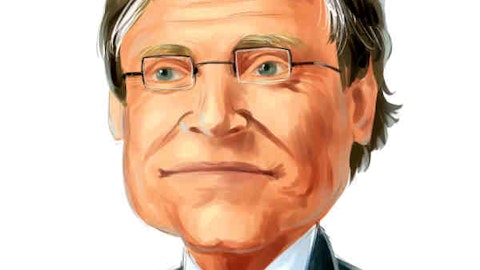Below are the 5 Best Value Stocks to Buy for 2021. For a comprehensive list please see 10 Best Value Stocks to Buy for 2021.
At Insider Monkey we leave no stone unturned when looking for the next great investment idea. For example, lithium mining is one of the fastest growing industries right now, so we are checking out stock pitches like this emerging lithium stock. We go through lists like the 10 best hydrogen fuel cell stocks to pick the next Tesla that will deliver a 10x return. Even though we recommend positions in only a tiny fraction of the companies we analyze, we check out as many stocks as we can. We read hedge fund investor letters and listen to stock pitches at hedge fund conferences. You can subscribe to our free daily newsletter on our homepage. Keeping this in mind let’s take a look at the best value stocks to buy according to Tom Russo:
5. Heineken Holding N.V. (OTCMKTS: HKHHF)
Tom Russo is bullish on Heineken Holding N.V. (HKHHF) over the last decade. It is the fifth-largest stock holding of Gardner Russo & Gardner’s portfolio. Although Heineken shares underperformed in 2020, its stock price is still up 100% in the last ten years. Heineken offers a dividend yield just below 1%. Heineken Holding N.V., through its subsidiaries, brews and sells beer and cider. The company has generated $23 billion euros in December quarter revenue.
It is clear that Tom Russo believes multinational European mega-cap consumer products companies present safe, long-term investment opportunities. These stocks won’t double your money in a year or deliver 10x gains in 5 years, but they will probably produce low double digit annual gains over the past 5 years without taking a bunch of risk.
4. Alphabet Inc (NASDAQ: GOOG)
The hedge fund held a position in Alphabet since 2014 and it appears that Tom Russo’s stock-picking strategy worked for the hedge fund. This is because shares of Alphabet rallied 200% in the last five years. It is the fourth largest stock holding of Gardner Russo & Gardner’s portfolio.
Kinsman Oak Capital Partners Inc., which generated a return of 6.4% for the fourth quarter, highlighted few stocks including Alphabet in the Q4 investor’s letter. Here’s what Kinsman Oak Capital Partners said:
“Our view on Alphabet (GOOG) may be somewhat controversial. The bear case for GOOG boils down to antitrust risk and valuation. Our thesis is predicated on the belief that real earnings power, especially for Alphabet, is higher than it appears on the surface. At first glance, Alphabet’s P/E appears to be 30.2x. Adjusting for net cash brings this down to 27.9x. Alphabet’s “Other Bets” segment generates de minimis revenues but reduces operating income by 13%. Adjusting for that (and assigning zero value to a segment that includes Waymo, Nest, and Verily) brings the multiple to 24.7x versus the S&P 500 trading at 22.3x.”
3. Berkshire Hathaway (NYSE: BRK-A) (NYSE: BRK-B)
Tom Russo looks bullish over Berkshire Hathaway’s (NYSE: BRK.A) (NYSE: BRK.B) performance over the last two decades. The hedge fund has been holding big positions in both class A and B shares. The firm held 3419 shares of BRK.A and almost 2 million shares of BRK.B at the end of the fourth quarter. Both positions generated strong share price gains in the last two decades.
In the Q2 investor’s letter, Nomadic Value Investment Partners highlighted the confidence in Berkshire Hathaway. Here is what Nomadic Value Investment Partners stated:
“We added to Berkshire Hathaway. I won’t spend too much talking about this, but BRK is as attractively priced as it’s been in some time. The press’s and FinTwit’s fascination with “Warren’s lost it” is at a cyclical peak and is complete noise. However, the valid bear argument is that BRK is too big to compound at good rates going forward, and subsidiary company performance will be weak for the next couple of years with its high exposure to air traffic (Precision Cast Parts and previously held airline stocks) and holdings in “old economy” manufacturing and retail businesses. Also, short-term there’s an unknown consequence of insurance claim payouts and/or refunds13 . We wouldn’t completely disagree with these judgments, and the optics are certainly bad when BRK doesn’t buy back shares in a quarter with a substantial sell-down. However, with a long-term lens and given the management style of BRK (conservative talk and overperform), we will likely be quite satisfied in the future – whatever that looks like. Meanwhile, we’ve gotten into a range where 30%-50% of BRK is free. Are the actual growth prospects for Berkshire this dire? Berkshire is our largest position.”
2. Nestlé S.A. (OTCMKTS: NSRGY)
Nestle S.A. (NSRGY) is one of the best value investments in Tom Russo’s view. Gardner Russo & Gardner first initiated a position in Nestlé S.A. in 2011 and it currently represents the second largest stock holding of its 13F portfolio. The share price of Nestle rose 101% in the last ten years. On the other hand, the dividend factor makes Nestle an attractive stock to hold for the long-term investor. The company currently offers a dividend yield of 2.5%.
1. Mastercard Incorporated (NYSE: MA)
Gardner Russo & Gardner initiated a position in Mastercard Incorporated (NYSE: MA) in 2008 and it is the largest stock holding based on Q4 filings, accounting for 14% of the overall 13F portfolio. Despite underperformance in the last twelve months, shares of Mastercard grew 1250% in the last ten years. The payment technology company raised dividends in the last ten successive years.
In the Q3 investor’s letter, Del Principe O’Brien Financial Advisors highlighted few stocks including Mastercard Incorporated. Here is what Del Principe O’Brien Financial Advisors stated:
“The market pullback in the spring gave us a chance to become owners of Mastercard, one of the biggest players in the global payments industry. In the fiscal year 2019, the company processed almost $5 trillion in purchase transactions and holds 29% of the global market share for credit cards and 24% of the global market for debit cards.
In June, Mastercard entered into an agreement to acquire Finicity, a financial data and insight provider, for a purchase price of $825 million. The move is meant to strengthen Mastercard’s existing open banking platform. Open banking is a system that gives third parties, including other banks and tech start-ups that provide financial services (think budgeting apps), digital access to financial data. A user-focused innovation in the banking industry, open banking is thought to be the future of banking. We see an active investment in its open banking platform as a good move for Mastercard toward maintaining its leadership in the global market.”
You can also take a peek at Bill Gates’ Most Recent Investments and 15 Biggest Companies That Accept Bitcoin.





